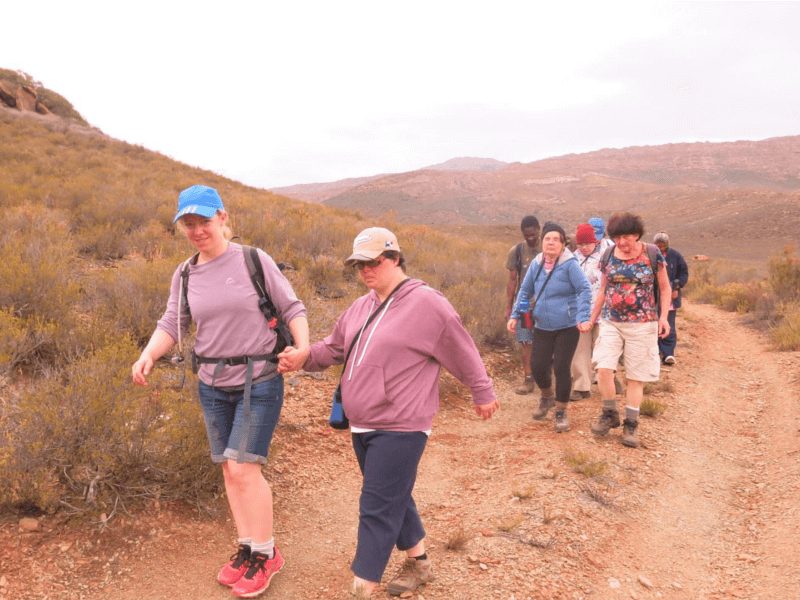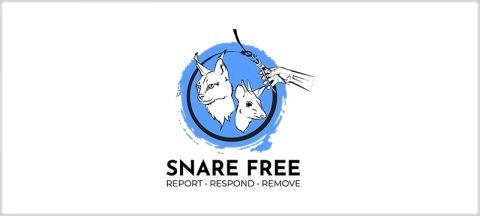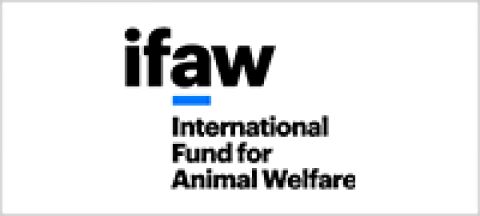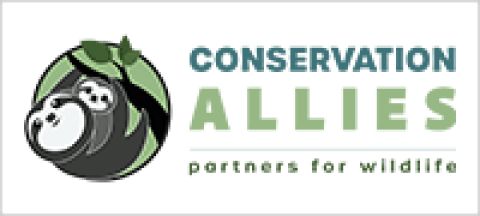Displaying items by tag: education
The Cape Leopard Trust at the Cape Getaway Show
It started off on a rainy Friday morning, the Cape Getaway Show (31 March – 2 April), packed with great prizes, great demonstrations and so much to see and do. Although not full, many people still came out to see what they could see.
The Saturday morning, however, was a completely different story, weather wise. Clouds were swept away by blue sky and the sun rolled out, in full force, drying up the previous days’ puddles.
The Cape Leopard Trust (CLT) was very kindly given a part of the Jaguar Stellenbosch exhibition stand to set up our own information table. The CLT education team was ready and prepared for the masses that had begun to come in. We got to meet people from all over the city and country, people who knew nothing about the Cape's leopards and people who knew a lot about their presence in our beautiful mountains. It was a privilege to be able to talk to such a variety of men, women and children. All of them leaving the table with a little bit more knowledge about the leopards and the threats opposing conservation in our city.
Sunday brought many more people out to the Cape Getaway Show, with even more people coming to find out what we were all about.
It was a great weekend spent sharing our passion and love for education and conservation with so many different people from all backgrounds.
We would like to thank the Jaguar Stellenbosch team for their continued support and assistance. We would also like to thank all those who contributed to our work with their wonderful donations.
Survival workshop with Herschel Eco-club
On Friday the 17th March, the CLT education team visited Herschel Girls Preparatory to conduct a survival workshop as part of the Eco-club programme. The girls were introduced to the different adaptations and survival mechanisms that various plants and animals have to protect and defend themselves in nature. They were given a short and informative presentation about the various morphological and / or behavioural adaptations of different species. They learned about words such as camouflage, mimicry, stealth, signalling, agility, nocturniality, group-living, poison & venom, outwitting and many, many more. The presentation set the tone for the next activity which involved a match-up game and in groups the girls had to match a picture of a plant or an animal with their adaptation. We then ran through the answers and gave a lesson on each adaptation. The girls thoroughly enjoyed this exercise and it proved to be very interactive and informative.
We then all ventured outside with magnifying glasses to explore the school gardens, and see what we could find walking, crawling or flying about. We found a Guinee fowl feather, a Songololo, an Earwig, a Lady-bug, a Spider, and a Snail. We then discussed what each of these creatures' adaptation to survival might be. We were hoping to find a very special creature – a Cape Dwarf chameleon, and we looked hard but sadly we did not find one that day. The girls were encouraged to have a look in their gardens when they get home to see what they can find living there, and that they should think about what that creatures adaptation may be.
After the session we witnessed many of the girls beeming with excitement whilst telling their parents all about what they had learned.
It is important to remember that the never-ending beauty and magic of nature does not only exist in the game reserves, national parks and nature reserves. It exists in our schools, homes, gardens and all around us. We must just be continuously looking for and appreciating all that there is to see. We must never stop learning about and from nature, because it is so deep and so mesmerizing and so wonderful, we only need to open our eyes and ears to its wonder.
Thank you to Mrs Codd and Mrs Nel for their assistance that day and for their enthusiasm towards keeping the Eco-club going. They mentioned that they had also learned some new things that day, and it is without a doubt that with nature, we will always be learning.
Written by: Catherine Kühn
Calling a new intern for our second camp season of 2016!
Hi Everybody,
The Education Project is looking for interns to help with its environmental camps in the Cederberg for the second camp seasons in 2016.
We run environmental camps from our campsite in the Cederberg, a mountain wilderness area in the Western Cape about 4 hours north from Cape Town. The camps cover a broad base of topics related to the environment and personal development. They generally run for three to five days for groups of 10 – 30 people. It is a self-catering set-up and groups have their own supervisors, so the role of the CLT is simply to provide and run the programme. We focus on school groups but have a variety of other groups attending camps as well. The camps are fee-based but we also provide sponsorship for groups who need it. This means that groups come from a wide range of backgrounds. Programmes are tailor-made for each group in consultation with the group leader, and cover a broad range of topics and activities, including predator research, mammals, Fynbos and Karoo biomes, reptiles, Black Eagle research, geology and geography, fossil finding, astronomy, art and creative writing, hiking, swimming and exploring.
We are offering an internship position in the Cederberg from the beginning of September – mid December 2016. We are looking for a general assistant with environmental knowledge to help on the camps. The intern would be expected to stay in the Cederberg for the time, although by arrangement the intern can leave between camps if transport is available or with own transport.
Description of intern’s role:
Camp assistant, including but not limited to:
- Practical campsite set-up, running and maintenance
- Helping to facilitate hikes, outings and all other camp activities (including art and creative writing)
- Creating and leading sessions, presenting aspects of the programme
- Learning about the topics that we cover (e.g. fauna, tracking, flora, geology, predator research, etc.) to help explain and answer questions
- Keeping an eye on children (safety, support and discipline)
Requirements:
- Passionate about the environment and able to share this interest
- Work well with people, particularly children (aged 10 and up)
- Teaching experience an advantage
- Must have valid 1st aid level 1 certificate
- Must be fit, generally healthy and enjoy hiking
- Fluent English essential, additional Afrikaans or Xhosa an advantage
- Good general knowledge of plants, animals, geology, etc an advantage
- Responsible and reliable
- Good organizational skills needed for overseeing campsite supplies, etc
- Patient, confident, good humoured, professional
- Prepared to do mundane tasks and physical labour
- Able to deal with isolation, solitude and simple living
- Must maintain cleanliness, keep living space neat and take good care of equipment
- Prepared to work flexible hours – during camps days start early and can end late at night
- Computer skills (especially word, excel and powerpoint) an advantage but not essential
- Good writing skills an advantage but not essential
- This is open to all genders and nationalities
What we offer and what we don’t:
This is an opportunity for hands on experience in a beautiful setting. There is lots of room for developing personal interests and really contributing to the project.
We are able to provide simple accommodation with a shared kitchen in the Cederberg. Accommodation consists of a room with a bed, toilet and shower. Shared kitchen has a fridge/freezer, basic cooking equipment and utensils, gas burners, tables and chairs (note: no oven). There is electricity.
We can provide transport to and from the Cederberg with camp groups if needed (from Cape Town).
Internet access is available from the office at certain times (wireless) with own computer.
The intern must provide own food and transport to Cape Town. Please note that it is essential that you have financial backup, we are not able to support you or supply transport home if you have financial problems.
How to apply:
If you are interested and consider yourself suitable for the position, please complete the attached application form and send it as well as a CV and a motivating letter to Hadley Lyners: [email protected] or call on +27 82 811 5934. Please note that as we are under time pressure to secure an intern timeously, we will be conducting interviews as suitable applications come in, until we have found someone. We therefore suggest that you submit your application ASAP.
Closing date for submissions: Friday, 12 August 2016
Aardvark Holes, Stok-Broodtjies and Lumi Bands
The story of our camp with Adam’s Farm Home
By Environmental Educator, Catherine Kühn
In March this year our education team held a sponsored camp for a group of nine women from Adam's Farm Home. The home in Plumstead is a permanent residence for intellectually disabled adult women and is run by a dedicated team of nurses and staff. Towards the end of last year, I visited the home and presented a Cape Leopard Trust talk...
As in all cases where we give a presentation, the school/group/listeners are captivated by the information in the presentation and want to know more about our work at the CLT. I was flooded with questions after my presentation and left with the feeling of "we must do something more".
It was with this feeling that I came to our Environmental Education Coordinator, Nicole le Roux, with the idea to offer them a fully sponsored environmental education camp. The staff at Adam's Farm were thrilled with the idea and were surprised by the offer. We thought, "why not? Every person deserves a special experience such as this."
And so it was set in motion and the planning began. We were constantly being told how excited the ladies were until finally the day arrived and we met at the home to greet the ladies who were attending the camp. Even those who were not coming on the camp were still excitedly awaiting our arrival and gathered around to see the Leopard Bus! We were touched to meet the families of several of the women and appreciated their trust in us to take their loved ones on a camp experience.
We packed the bus and trailer and were on our way to Simonskloof Mountain retreat farm outside Montagu where this particular camp was to be held. On the way everyone was chatting away and when we arrived at our destination and the women climbed out of the bus they were instantly in awe of the beauty surrounding them.
I showed them around the campsite and explained the compost loo's, this was a very new concept and there was a lot of laughter and joking. We took a short hike to the dam and some of the ladies swam in the cold water. That night we braaied under the stars and attempted to make stok-broodjies (stick bread) with dough twisted around a stick. The dough made us sticky as we twisted it around and around branches and tried to cook it on the fire. It was a big hit, the group kept saying they want to do this again at home!
Early in the morning we awoke to a loud thunder storm and flashes of lighting. Woken up by the storm, the group huddled together in their tents at first light laughing.
Later that morning as the sun came out we took the group on our main hike, a fairly relaxed walk down the valley from the campsite escorted by the resident sheep dog. We stopped to look at various tracks and scat along the way, and we even saw leopard scat. We walked passed our camera trap and one by one we all pretended to be a leopard as we posed for a picture. We found a lovely lunch spot under an oak tree next to the river where we spent a while relaxing, eating and taking in the views.
A highlight for myself and for the group was coming across three huge Aardvark burrows. Our intern Hilda and I each climbed into the opening of the burrow, large enough for a human! Not surprising though, because adult Aardvark can weigh up to 65kg!
In the late afternoon we did activities at the campsite, including folding origami cranes and hearing the story of the crane. We also coloured tortoises after having seen them the previous day wandering the camp site. At the end of the session each of the women received their own Cape Leopard Trust puzzle.
That night we braaied again, and this time we did stok-roasted marshmallows for pudding before we headed off to do our scorpion search and star gazing. We unfortunately found no scorpions but we did have a good star gazing session and each participant got to look at the full moon through binoculars. One of the participants still claims she saw people on the moon!
Special thanks …
We would like to extend our thanks, on behalf of the education project team, to our sponsors for making this and many other experiences possible. The women in this group have never had an experience like this before and really appreciated the opportunity.
A very special thank you to Rand Merchant Bank for sponsoring the staff time required to coordinate and implement this camp and to National Lotteries Distribution Fund for sponsoring the food, transportation and accommodation for the camp. A Big thank you to Hi-Tec, for the shoes and sleeping bags that they sponsored for the Programme, used regularly and greatly appreciated on this particular camp. A warm appreciation and thanks to the Lindbergh Joan St Leger Charitable Trust for sponsoring the printing of the leopard puzzles provided to the participants of the camp among hundreds of others in the past year.
Thank you to Hilda Chishamba, our dedicated and amazing intern, Rona van der Merwe and Oswald Kucherera for volunteering your time and help on this camp.
Thank you to the women at Adam's Farm for making this camp so special for us. We learned things about ourselves, about all of you and especially to really appreciate all we have in life. Thank you for all the thank you letter's, lumi bands and woollen coasters we have received and still continue to receive as appreciation gifts from you. We carry them around with us. Lastly, to the staff of Adam's farm who came along and helped us run the camp successfully, thank you for your dedication and the heroic effort that goes into the work that you do every day!
Launching our Poetry Competition, “Is Nature Calling You?”
As you may know, every year the Cape Leopard Trust Environmental Education Project hosts a creative competition. This year we are excited to announce that we are holding an Inter-school poetry competition called "Is nature calling you?" and we are now accepting entries! The deadline for submissions is Friday June 17.
THE IDEA BEHIND THE COMPETITION
At many of our camps we have noticed that experiences in the wilderness evoke poems from children and young people alike. Watching the sunset through magnificent rock formations in Stadsaal or listening to the birds or the sound of the silence naturally nurtures creative expression. This is why we want to support young people in accessing their ability to put words to the magic they experience in nature, to take a moment to deeply connect to what the environment means to them and to have the opportunity to experience the Cederberg and seeing their poetry in print!
GREAT PRIZES TO BE WON!
First Place prizes will be awarded to the top three artists in each of the four age categories. An additional 12 runners-up will be selected as well.
The poems of the winners and runners-up poets will be featured alongside renowned local writers in a coffee table book. The winners will receive a copy of the book and a free spot for themselves and a friend on a poetry themed camp in the Cederberg. Runners-up will receive a copy of the book and a leopard puzzle. Winning poems will be recited by local artists (or the young people if they like to!) at a Cape Leopard Trust auction event in 2017.
GUIDELINES
Entries must be received by the closing date, Friday 17 June 2016
Poems can be written with any structure as long as they speak in some way to the theme “Is Nature Calling you?”
Poems can be in submitted in Xhosa, English or Afrikaans.
The competition is open to children and youth ages 10-20. Age categories for judging will be 10-12, 13-14, 15-16 and 17-18.
Each poem must have a title and the name of the poet and be accompanied by an entry form.
A maximum of two entries per individual will be accepted and 20 entries per school/organisation.
Must be original work done by entrant, following all guidelines.
Judging criteria: relevance to theme, impact, strong message, genuine personal response, creativity, skill.
RULES
In entering this competition the entrant and their parent/guardian/representative agrees that the organisers have the right to print the poem in a coffee table book which will be sold and/or auctioned and that the organisers have the right to have the poem read at a Cape Leopard Trust event by the entrant or another poet or Cape Leopard Trust staff member and auction a copy of the poem. The entrant also agrees that the organisers have the right to use the poem in marketing material including social media.
Judges will be made up of high-profile poets, environmentalists, sponsors and Cape Leopard Trust staff.
All participating schools/organisations/individuals will be advised as to the results of the competition.
HOW TO SUBMIT
Submissions are accepted via email to [email protected] with "Poetry Competition Entry" in the subject line or by post (if received by 17 June) to P.O. Box Box 31139 | Tokai | 7966| Cape Town | South Africa
CONTACT DETAILS
Please do not hesitate to contact us should you have any questions!
Contact Person: Nicole le Roux
Phone: 071 642 4089
Email: [email protected]
Earth Day 2016 Child Art Auction Fundraiser at Hotel Verde
Like a hobbit’s burrow, guests made their way down into the magically transformed Hotel Verde basement. Into the warmth and out of the refreshing new rains.
African fire drums, marimba band beats, leopard dressed up welcome ladies from Afrodizzyacts, silver candelabra's with 100 flickering warming candles and the magical gentle light of 100 Consolsolar jars welcomed 120 guests to The Cape Leopard Trust's Green Carpet Event in partnership with Hotel Verde. The focus of evening was an exhibition and auction of fourteen incredible children’s art works, as well as two special charcoal leopard drawings donated by local artist Belinda Ardé. On arrival guests enjoyed sparkling wine courtesy of Leopard's Leap Family Vineyardsserved from the floating skirts of a leopard dressed lady, whilst guests watched an amazing Poi light display by Afrodizzyacts. The Trust was also very proud to release its freshly designed 2015 annual report, kindly sponsored by CTP Printers on 100% recycled paper.
A delicious #verdemoment dinner paired with exceptional Leopard's Leap wine was served while guest speakers, Dr Ian McCallum, Justin Bonello (Cooked In Africa Films) and Bridgestone shared their personal passions for leopards. The Cape Leopard Trust (CLT) environmental education team explained why experiential learning is vital to reconnect young people with nature and to inspire them to care for the natural world whilst Dr Kristina Bentley conducted a short successful auction, the proceeds of which will contribute to the environmental education component of the Trust’s work. Rachel Smith from Designstar Events worked closely with The CLT and the incredibly committed team at Hotel Verde for months to make the event a success. Her positive energy holding the space during the event was well received.
This was truly a meaningful and memorable evening that honoured the Earth, Art, Conservation and Poetry.
An ‘EPIC’ adventure with Soetendal NGK Primary School
By Hadley Lyners, CLT Environmental Education Coordinator
With the Absa Cape Epic underway, The Cape Leopard Trust traditionally seeks to increase environmental education awareness around the survival of Cape leopards along the route of this exciting cycling race. When our CEO, Helen Turnbull, asked the environmental educators whether they knew which school in the Boland area they could spread awareness to, it was an easy decision.
Every time we travel with groups to the Cederberg via Wellington, we pass a small, rural school which serves mostly local farmworkers’ children. Soetendal NGK started in the 1980s and initially had just over 150 learners from neighbouring farms and small settlements. Today they have 354 learners at the school. The school gets very little support from government and owes its existence largely to a church group and one individual land owner who donated land for a sport field, offered to have land levelled with machinery, etc. Furthermore there is no support from other farmers.
From having national systemic test results of about 3% the principal, Mr Coraizin and his team have managed to bring it up to 56%. They are the highest achieving of the approximately 25 primary schools in the district if one excludes the two ex-model C schools that have higher results. The teachers offer a lot of extra time to try and give the kids a boost when it comes to learning. One can see that the principal enforces good discipline, but is mindful that good staff relationships are vital to running a school. He was teaching in class whilst standing in for an absent teacher when I visited the school to do our presentations.
Given the size of their make-shift hall (which is basically two classrooms combined with a partition in the middle) I had two time-slots for presentations to all the learners at the school. The first session for grades R-3 was from 10h00-11h00 and the second session for grades 4-7 was from 11h30-12h30. I introduced the Cape Leopard Trust and the work that we do. I explained to them how our researchers use camera traps to find out more about the leopards and how the use of the camera traps has given us insights into the animals that are found in the Western Cape and the surrounding mountains. I also showed them some quick videos of leopards and had leopard sounds playing when they entered the hall. I was surprised at the spontaneous clap of hands at the end which showed me that the kids really enjoyed seeing the animals. At the end of the presentations I did a quick quiz about the animals that they had learned about and handed out the Environment magazine and some CLT stickers to those who answered correctly. I also left some more Environment magazines for the classes, a few CLT Art Competition 2016 calendars and leopard puzzles that the kids could enjoy in class.
At 13h00, a selected group of 20 (2 teachers and 18 learners) joined me on a hike up Paarl Mountain. I discovered that even though they are relatively close, many of the learners have not been there yet. Where we went was a first for the 2 teachers as well.
The huge, bulbous, granite rock is formed by three rounded outcrops that make up Paarl Mountain and according to the Drakenstein municipality it is the second largest granite outcrop in the world. We ascended Bretagne Rock first after I informed them about the history of the area, spoke of the indigenous people that roamed there and took some time out to have a look through binoculars into the surrounding landscapes. We also found some rock agamas and I could speak to them about these interesting little reptiles. At the top the learners had a look of achievement and we took some photographs to capture the moment.
We then moved along to Paarl Rock where we explored a cave, spoke of the Khoi and San people and their rock paintings. Afterwards I did a little activity with them using mini-microscopes. They formed groups and had to observe items which they collected. They then had to explain what they see and then pass their items on for the rest to see what they were talking about. We stopped to read some information boards and they even found a dead scorpion which gave me a chance to talk about scorpions.
After a long day we headed back home and I dropped most back at school. Some kids lived quite far from school on local farms and I decided to drop them home safely. Thank you to all the organisers of the Absa Cape Epic and our own staff for creating an opportunity and a platform for us to continue raising awareness of the plight of Cape leopards and to teach environmental education.
What an epic adventure!
‘How Lucky Are We?’
Environmental Education camp in the Cederberg with 2nd year students from Centurion Academy
By Rona van der Merwe
We are on our backs in a Cederberg dirt road surrounded by silence on a moonless summer’s night. It is one of those settings, one of those perfect moments where reality meets complete fantasy and whether I open or shut my eyes I am left with an image of stars shimmering above and around me. Someone whispers: “I’ve never seen stars like this before.” All I am left with is: “how lucky are we?” I can fall asleep in this spot, right here, right now. In fact, my tired body is begging me to do just that. But my mind is alight in energy as I reflect on the last two days in the Cederberg Mountains.
“This some-what strenuous hike is one of those perfect proper Cederberg hikes,” Catherine, our Environmental Educator, briefs us on the road ahead. “We’re going to do a little bit of climbing but I promise it’s fun,” she says with a climbing rope tied on her back (just for in case). The merciless sun seems to have little respect for our endeavour on this first day in March. Every now and again Catherine stops to point out a Protea species or to explain the erosion impacts of trails. We gulp away at our precious water and eagerly steal pictures. Finally we make it to the top, the start of the renowned cracks, where we take a few minutes to cool in the shade of magnificent, towering sandstone structures. Torches on and the ‘real fun’ begins. The Wolfberg Cracks hike is a first for me. I turn towards my colleague and all I am able to utter is: “I am in awe.”
Here in this ancient landscape where time has no grip but is instead trapped in layered greatness. I imagine the wisdom and power that these structures hold. How deep shall we have to look for it in ourselves? My feet tread on the sand, weathered away, grain by grain, little pieces of eons-old wisdom and power. I am humbled in the presence of these structures, the arch towering above my head. And I wonder how long I must stay, with all my anthropogenic elements, before I am accepted by this beauty, before I become the lizard in the cracks.
Back on my back in a dusty Karoo road I am still transfixed under the stars. And as a lay here I make a wish for myself, the students and all of humanity (there are shooting-stars around): May this night-sky, rather than make us feel small, remind us of our infinite responsibilities and power. May we realise our place in this galaxy and in the infinite galaxies beyond. And may we understand our role, as a human species and fall into a deeply wild, everlasting, boundary-breaking love for our magical planet.
I do believe that I speak for everyone present at this camp when I say that we are lucky. Lucky for opportunities like these to experience remaining wild places, to be able to return to our home: those places in the mountains that make way for the places in our hearts. We have the power to daily find and protect, beyond mere tangible measures, our homes which our well-being so vigorously cries out for.
Time in Nature with Witzenberg Primary School
The Cederberg Mountains meet with the Wolsey kids
By Hilda Chishamba, Cape Leopard Trust 2016 Intern
As part of the environmental education done by the Cape Leopard Trust, we hosted 16 Witzenberg primary school kids at Majtiesrivier Nature Reserve. The group arrived and set up camp at the Tok Tokkie Campsite. It was the first time camping for most, if not all the kids. The kids were full of energy and excited for the fun filled activities that were lined up for the camp.
We started camp with a visit to Stadsaal heritage site. The group was treated to an informative but fun lesson on the rock art and the history of the area by Catherine (environmental educator). To top that we hiked to Eikboom the next day and were fortunate to spot two black eagles on our way, and this pitched up the excitement. Between stops, the group learned about the Cedar trees and the fynbos. On reaching the swimming ponds, the boys proved to be better swimming nymps than the girls who were a little shy at the beginning. Because of how energetic the group was, we went on to hike up to the beautiful waterfall. After the eventful hike plus resting, the group enjoyed an educational presentation on animals as well as the Cape Leopard Trust. One thing that stood about these kids is that they were very keen and eager to learn, explore and enjoy nature. We proceeded to Truitjieskraal for some rock exploration and cave crawling. The group sang their heart out in the bus, on our way back to the campsite. To put the icing to that camp day, we had a night walk and the kids learnt about astronomy and searched for scorpions.
As they say all good things must come to an end, we ended camp by setting up a camera trap along a footpath. The kids pretended to be different animals and were captured on the camera. The group left only their footprints but took with them with experience of exploring the Cederberg Mountains and knowledge about nature.
Pledging to Save Water
By Catherine Kühn
Our first Cape Leopard Trust/Thrive eco-club for the year started off well with a visit to the Baviaanskloof river in Hout Bay. We had a full bus consisting of 15 children and 6 adults. Children from Kronendal, International school of Hout Bay and Disa Primary all joined for an afternoon's walk up the hill.
The environmental theme for Thrive this year is water and so the outing was focused around conserving water and the different ways we can help to save water. The children hiked all the way up what looked like a dried up river but when we reached the waterfall, we could see that there was still a small amount of flowing water. It was great for the children who have been up to the waterfall before to note the difference in the amount of water from winter last year to now (middle of summer). The children learned about perennial and non-perennial rivers, they learned about the cycle of water and were given the opportunity to sketch their own interpretation of a water cycle.
I also gave the children some questions to answer and a pledge which read:
"I (FULL NAME) _________________________________ make a pledge today (DATE) ________________to save more water. I will do all that I can at home, at school and wherever I go to save water and to the best of my abilities I will make sure others are doing the same.
Signed: (YOUR SIGNATURE) _______________"
Our current water situation in South Africa urges us to save as much water as we can and what better way to start off 2016 by making a pledge and promise to do exactly this.
Water is precious and we need it to survive, we need it for all our plants and animals to survive.
We do not ever want to have to pay for fresh flowing water and I expressed this fact and asked the children and adults to imagine hiking to somewhere as beautiful as the Baviaanskloof waterfall and there are people who charge for the water. It is definitely not what we would like to see happen in our future's so let's keep up our work and continue to be eco-heroes!

























